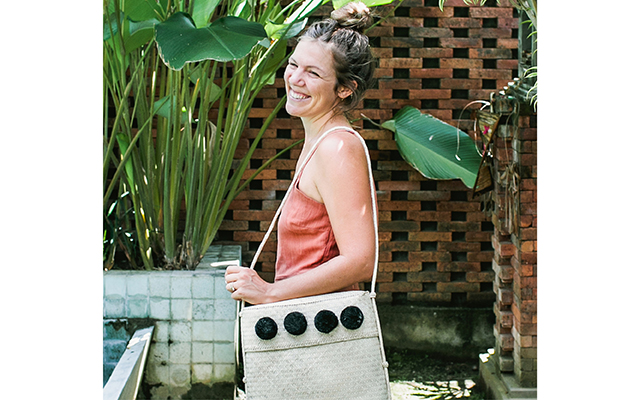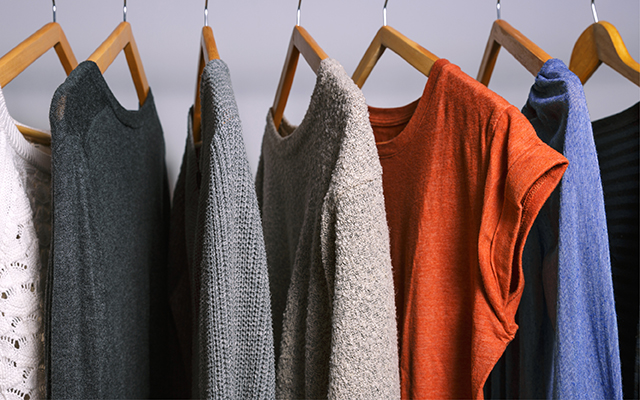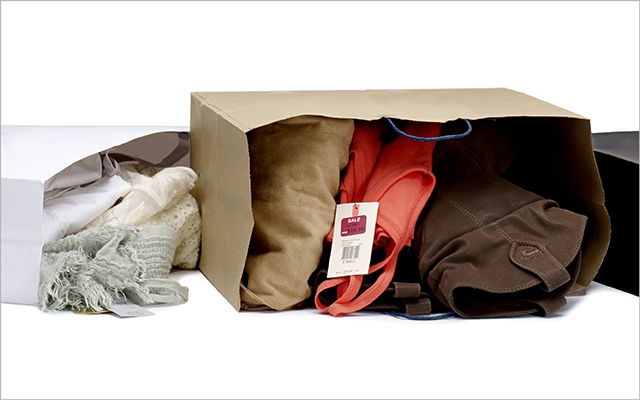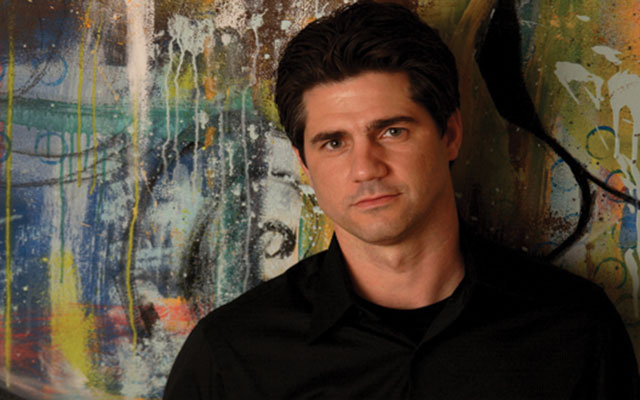31 Bits, a socially conscious brand, was founded in 2008, originating from a love for people, travel, and quality products. Ten years later the brand continues to empower women in Uganda and support skilled artisans in Indonesia, the people who make paper-bead jewelry, handwoven bags, ceramics, brass jewelry, plant-dyed textiles, wood serveware, leather goods, marble goods, and woven baskets.
We recently caught up with one of 31 Bits’ three founders, Kallie Thomson — who oversees international operations and is the lead designer — to hear more about the company, ethically produced products, and socially conscious purchasing.
Experience Life | What is 31 Bits?
Kallie Thomson | 31 Bits is a socially conscious brand. Our products are thoughtfully designed and ethically made. We collaborate with some of the most skilled artisans around the world by providing them with dignified job opportunities and giving them access to the global market. Paying fair and sustainable wages to our artisans is just the beginning of what we do. We believe in providing safe and joyful working conditions, a familylike atmosphere, and an environment where every artisan feels known. We believe quality work is a result of artisans who are being cared for as individuals. In a nutshell, we believe that how your stuff is made matters.
EL | Where did the idea originate from?
KT | I was in Uganda working in an orphanage when I met some amazing women who were making paper-bead jewelry. I got to know them over three months and spend time with them and their families. They were spending so much time on creating this jewelry, but they were not able to sell it to provide for their families. Some of them were not able to send their kids to school or provide basic necessities. They asked me to sell the jewelry for them in the United States. I was nervous about the commitment but knew that if it worked they would be able to change their own lives. It would empower them to create the life they desired. So really, 31 Bits originated from the women themselves.
EL | How has the company grown since it started?
KT | We first started in Uganda with six women working in their own homes creating only paper-bead jewelry. Since then, we have graduated more than 100 Ugandan women in our program, and they’re now providing for their families through their own businesses. 31 Bits has also diversified its products to include brass jewelry and handwoven bags created by skilled artisans throughout Bali and beautiful home products with artisans in Bali, Java, and Uganda. We are so proud of how far we have come and the skill and ability of the artisans we get to work with.
EL | How many artisans do you employ?
KT | We currently employ 42 women in Uganda who make our amazing paper-bead jewelry. For our brass jewelry and home goods, we partner with more than 40 artisans.
EL | How many people have you helped through 31 Bits?
KT | The more than 100 women who have gone through our extensive four- to five-year program in Uganda have received income through jewelry production. They have also received holistic care, including counseling, health training, and spiritual guidance, and been brought into a community of like-minded women. The program also concentrates on business creation. Women go through extensive finance lessons, current business opportunities, and one-on-one guidance to create their own business so that they are able to graduate from 31 Bits with their own sustainable business.
Working with skilled artisans looks different. We get to partner with them in what they are currently doing and provide a market and a fair wage for their beautiful products. We have been able to work with more than 40 artisans and are so very excited to watch that number grow.
EL | You just launched the Goods section in late November 2017. What was the inspiration behind adding that to the jewelry line?
KT | The inspiration was being in Bali and seeing so many amazing and skilled artisans creating beautiful products. 31 Bits wants to create products that are fairly made and purchased to inspire consumers to know who is creating the products they’re buying. If we can create more products for people to purchase fairly and know who is behind their products, then let’s go for it! This is not just changing the artisans we get to work with but also the mentality of the consumer, to know who is behind a product and how are they treated.
EL | What are other brands that you love to shop that are ethically produced?
KT | There are so many good ones now! I love that it has become more than a trend — that it is becoming expected for goods to be ethically produced. My favorites are Known Supply, Sseko, Lalesso, Everlane, People Tree, Indego Africa — there are so many goodies.
EL | What would you like people to know about shopping for ethically created products and their accessibility?
KT | Anything you want to purchase you can find being made ethically. Ethically created doesn’t mean they have to have an extensive program like our Uganda program but just to know that the people who are making the products are treated well and paid fairly. Most likely if it is cheap, it means someone along the line wasn’t paid fairly.
EL | What would you say to someone who thinks ethically produced products are too expensive?
KT | There is a reason ethically made products cost more, and it is because the workers are given dignified work conditions and fair wages. I think the answer is to purchase less in quantity and focus on things that are of higher quality and ethically made. Our society has become so used to excess at any cost. The current cost is on the workers — they are the ones paying for our excess. Buying less helps our planet and the people who make the products.
EL | Have you seen an increase in the number of people who care about ethically produced goods? Why do you think that is?
KT | Yes. It is beyond a trend and is becoming the norm.
EL | Why do you think that is?
KT | I think people want to know how things are made and who is making them. There is a rise in wanting to connect with people globally. We affect each other globally in so many ways: in how we treat this Earth, in how we purchase items, and in how our governments interact. We can’t make changes in everything, but we can choose how we care about people and this planet.




This Post Has 0 Comments